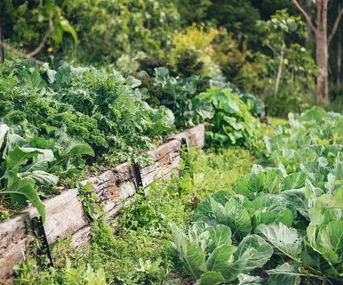At the coffee shop
A recent, mind-boggling statistic estimated that Kiwis throw away around 295,000,000 coffee cups a year, so if you haven’t already got your hands on a reusable cup there is no better time than now to jump on the bandwagon. Find a cup that will make you proud to present it to your local barista and make sure you always have it close by when you know you are likely to crave a coffee. If you forget your cup, seek out a café that is part of the new Again Again initiative, where you can loan a stainless steel coffee cup for $3 and return it to any partner café for a refund. If all else fails, take the opportunity to give yourself a five-minute pause in your day by enjoying your cup of joe inside the café. Sit down, read the paper and savour the enticing smell of freshly brewed coffee.
When it comes to your brew of choice, both in the coffee shop and at home, making informed decisions will ensure you are consuming the most earth-happy beans. A helpful guideline is the Fairtrade Mark, which guarantees that coffee farmers are paid a fair price for their beans, allowing them to grow their produce in sustainable social and environmental conditions. If your local café’s beans have the Fairtrade Mark, you can rest assured your money is going back into improving these conditions and making your coffee taste even better.
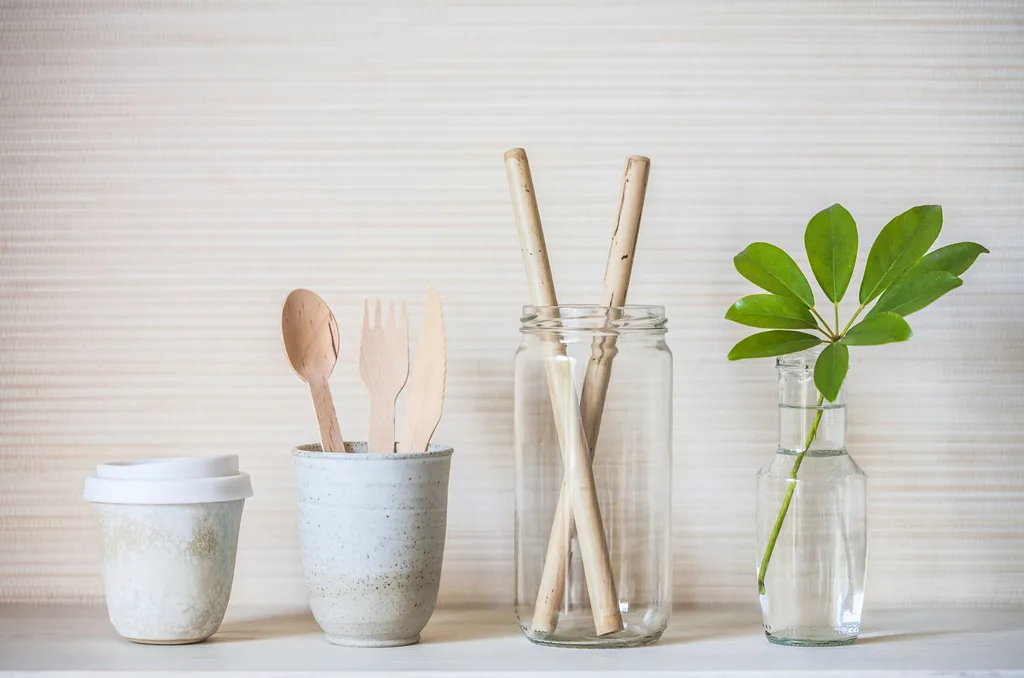
At the bar/restaurant
There are so many simple things you can do to improve your foodie eco-rating when splurging on a meal or a drink out. The easiest way to make an impact is to forgo takeaways in favour of dining in, which will immediately remove the need for food containers, napkins, bags and cutlery. However, if you are really craving a night of pad Thai in front of the TV, let the restaurant know when you order that you will be bringing your own reusable container and use cutlery from home – too easy!
When the waiter asks, “Still, sparkling or tap?”, flex your sustainable decision-making skills by going for the only option that doesn’t require any extra packaging between the faucet and your mouth (read: tap water), unless you are dining somewhere that is lucky enough to have sparkling water on tap. If beer is your drink of choice, opt for a tap brew rather than one that comes in a bottle or can, as large kegs have much less packaging waste than individual drinks. And before heading out, make sure you pop your stainless steel or bamboo straw in your bag so you never need to use a pesky plastic one.
Most importantly, put your money where your earth-loving mouth is by supporting local businesses with local dishes and drinks on their menu. Research your options first, and choose to dine somewhere that has transparent sustainability practices and efficient waste policies – all it takes is a quick google! Order dishes that are made of sustainably grown, farmed or caught ingredients, and make sure your eyes aren’t too big for your tummy by ensuring you only order as much as you know you can eat.
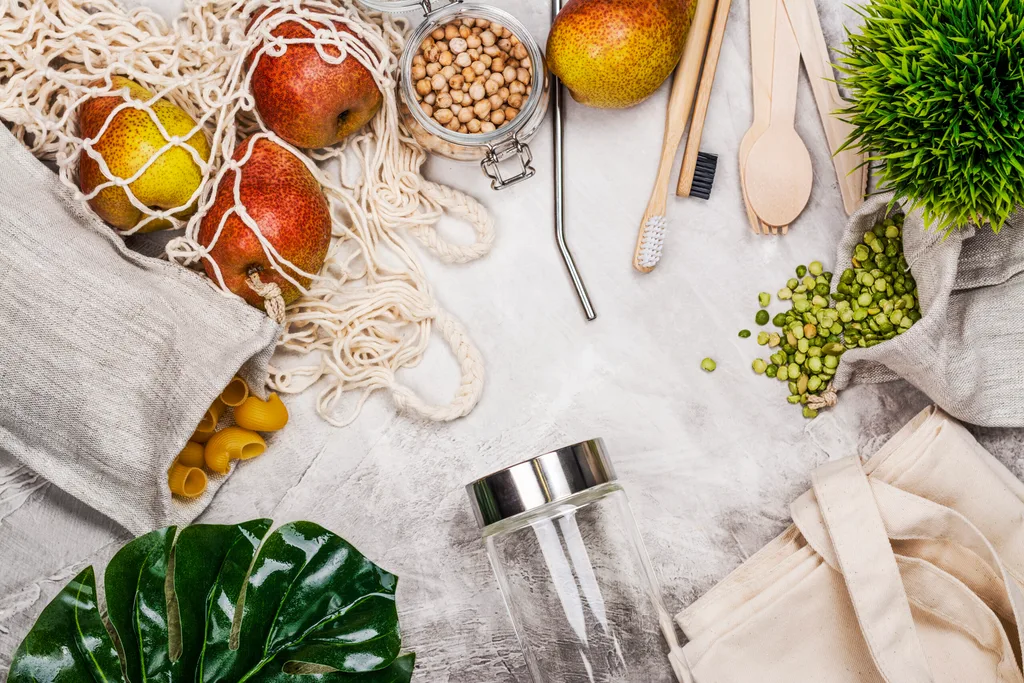
At the supermarket
Leaps and bounds have been made in reducing single-use plastic bags in New Zealand over the last couple of years, being officially banned since July 1st. Forgetting to bring your reusable bags is therefore no longer an option, but there are countless other ways to make sustainable choices at the supermarket. Add cotton or mesh produce bags to your pile of reusable shopping bags to carry your fruit and vegetables, and opt for plastic-free packaging wherever possible in favour of paper, glass or aluminium.
Seasonal fruit and veg is the way to go in the produce section, as anything that’s not in season requires either energy-consuming greenhouses to mimic the right growing climate or long travel miles to import them from overseas. Seasonal produce is usually much cheaper and fresher as well, so it’s a win-win! Buying imperfect produce is another easy way to fight against food waste, and it’s often priced much lower than its ‘perfect’ counterparts, such as Countdown’s Odd Bunch initiative.
Buying in bulk is another simple tactic for limiting packaging (as well as car trips!), whether done at the supermarket, a refillery or bulk foods store or at your local farmer’s market. Just make sure that whatever you buy is stored correctly, to prevent it from going to waste before you can eat it. And remember that the best way to practice environmental and social sustainability is to buy locally grown, made or produced food as much as you can. Put your consumer dollar back in your own community and keep New Zealand green and prosperous.
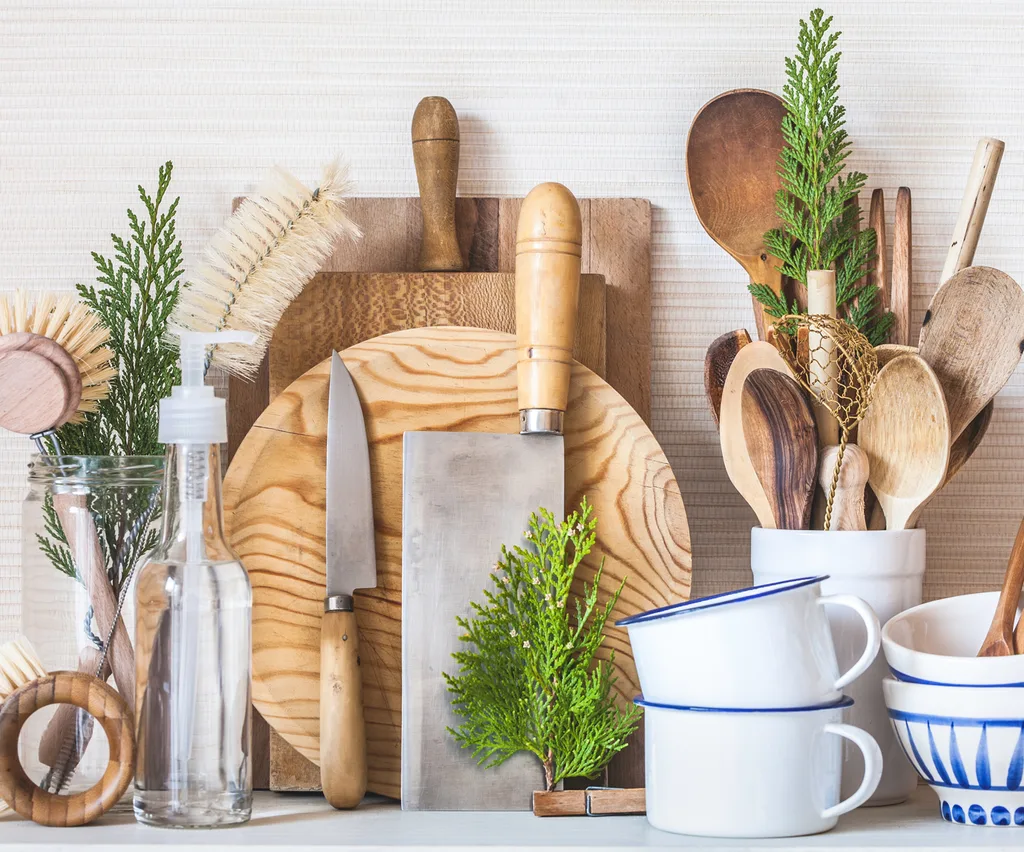
In the kitchen
There are a few easy fixes you can make in your kitchen and garden to create a more sustainable home. Work on making your cleaning cupboard more earth-friendly by swapping chemicals for natural products, or even have a go at making some yourself with what you have in your pantry. Next time you need to throw out your dirty dishcloths, upgrade to The Green Collective’s spruce cloths, which are machine-washable, last for up to a year and are both biodegradable and home-compostable. And, of course, opt for beeswax wraps as an eco-friendly alternative to plastic wrap.
Try your hand at creating homemade snacks and condiments to avoid the need to buy unnecessary plastic-wrapped food at the supermarket, and why not save on the grocery bill by growing as much fresh produce at home as possible. Even if you only have space for a few pots of herbs on your windowsill you are making a difference, both for the planet and your wallet! You can also create small-scale compost systems with very little space, so get yourself a bin and get started – it’s easier than you think.
New Zealanders waste about $872 million worth of food a year by cooking too much, not utilising leftovers, or through food spoilage – resulting in a whopping 122,500 tonnes of food waste! To curb these habits, clue yourself up on how to store your groceries correctly, make the most of your freezer to store food that you won’t be using in the next few days, and find out just how far you can safely stretch use-by dates to get maximum mileage out of your food. And last but not least, get creative with leftovers so your hard work in the kitchen will never go to waste!
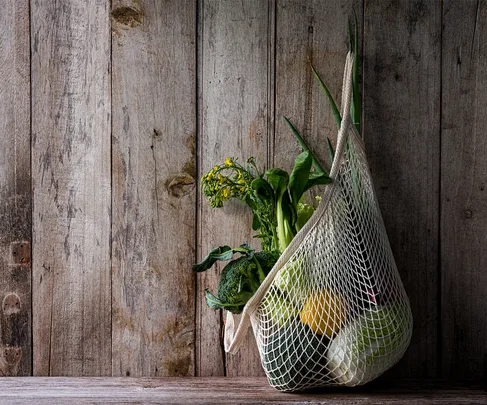 Getty Images
Getty Images
